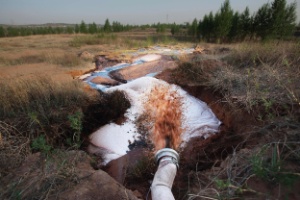
A project operated by Shenhua Group, the largest coal miner in China, reduced the groundwater level in a region of Inner Mongolia and poured a large amount of contaminated water in nature, the environmental group Greenpeace said on Tuesday (23).
This is the first time that the NGO points and challenge publicly the most powerful Chinese state, at a time when China's government is facing growing protests over environmental degradation.
China recently canceled the construction of a uranium processing plant that would cost $ 6 billion, because of protests that brought hundreds of people. Other petrochemical projects were canceled after popular demonstrations.
The pilot plant coal liquefaction near the city of Ordos withdrew over 50 million tons of water table in the region Haolebaoji since 2006, according to the Greenpeace report. There are two other plants of its kind in China.
"We are taking these allegations very seriously and we will start our own investigations on the project to ensure it complies with all environmental regulations," said a spokeswoman from the Shenhua Group.
Greenpeace said to have visited the plant on 11 occasions between March and July this year, finding high levels of toxic substances in wastewater. It said that many carcinogens have been identified in sediment samples.
"The Shenhua says the project of transforming coal into liquid has' low water use 'and' zero discharge." Our research shows that these claims are false, "said Deng Ping, activist organization.
"The practices of Senhua are violating Chinese laws and principles for water resources that control the discharge of water used industrially."
The plant has capacity to produce 1.08 million tons per year, and Shenhua plans to expand the capacity of 5 million tons.
This would cause water use to triple by 2017, reaching 41 million tons, according to Greenpeace.
Source: www.uol.com.br
Nenhum comentário:
Postar um comentário